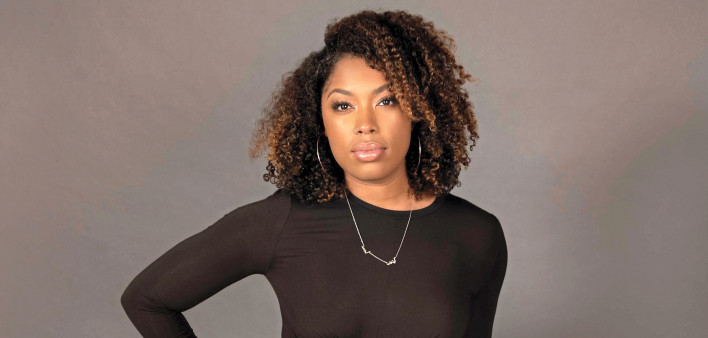While growing up in Los Angeles County, Raniyah Copeland, MPH, learned about Black liberation and the importance of making the world a better place for Black people. To that end, she vowed to ensure African Americans would live long and healthy lives.
“My ancestors fought for me to have freedom that they never had,” says Copeland, age 36, president and CEO of the Black AIDS Institute (BAI) in Los Angeles. “There are still so many freedoms that Black people lose and disparities that you can see in every aspect of Black life.”
Health disparities are a major problem within the Black community, Copeland notes, as African Americans are disproportionately affected by many chronic health conditions, including HIV.
After earning a college degree in public health and African-American studies, Copeland got a job at Planned Parenthood, where she witnessed firsthand the impact of HIV on the Black community.
“The experience of young Black gay men coming into the clinic and testing positive and feeling like it was inevitable was such a horrible thing,” Copeland recalls. “What a way to live and to feel like you’re going to have this outcome that impacts your health and life just because of who you are.”
In 2008, Copeland, who is HIV negative, was hired at BAI, where she started out as a training and capacity building coordinator and was the group’s chief HIV prevention expert. While working, she earned a master’s degree in urban public health.
Over the years, she was promoted to director of training and capacity building as well as director of programs. Then, in late 2018, she was named president and CEO. None other than BAI founder Phill Wilson said Copeland was the best choice to lead BAI into the future.
“Overall, it’s been a really great experience,” Copeland says. “I’m grateful for the opportunity, the love I’ve received, the growth that I’m experiencing and the people who are riding along and who are catapulting the organization.”
BAI works both locally and nationally. In Los Angeles, the institute serves and tests over 3,000 Black people annually. It provides health care services for underserved communities and programming specifically tailored to Black queer men. Across the country, BAI works with health agencies and organizations to develop culturally affirming services that help engage Black people in HIV care.
“A lot of our strategy is engaging Black America directly,” Copeland explains. “There’s this whole big world that Black people live in, and connecting HIV to these systems is important to help frame our engagement in HIV and conversations around HIV.”
In October, BAI launched the Black Voices Matter video discussion series featuring Black celebrities in an effort to raise HIV awareness in Black spaces where it was previously ignored or misunderstood.
Copeland’s advice to the African-American community is simple: “We got us.”
“There is a tribe of folks working every day to end HIV as we know it,” Copeland says. “We do this work because we love each other and ourselves.”







Comments
Comments